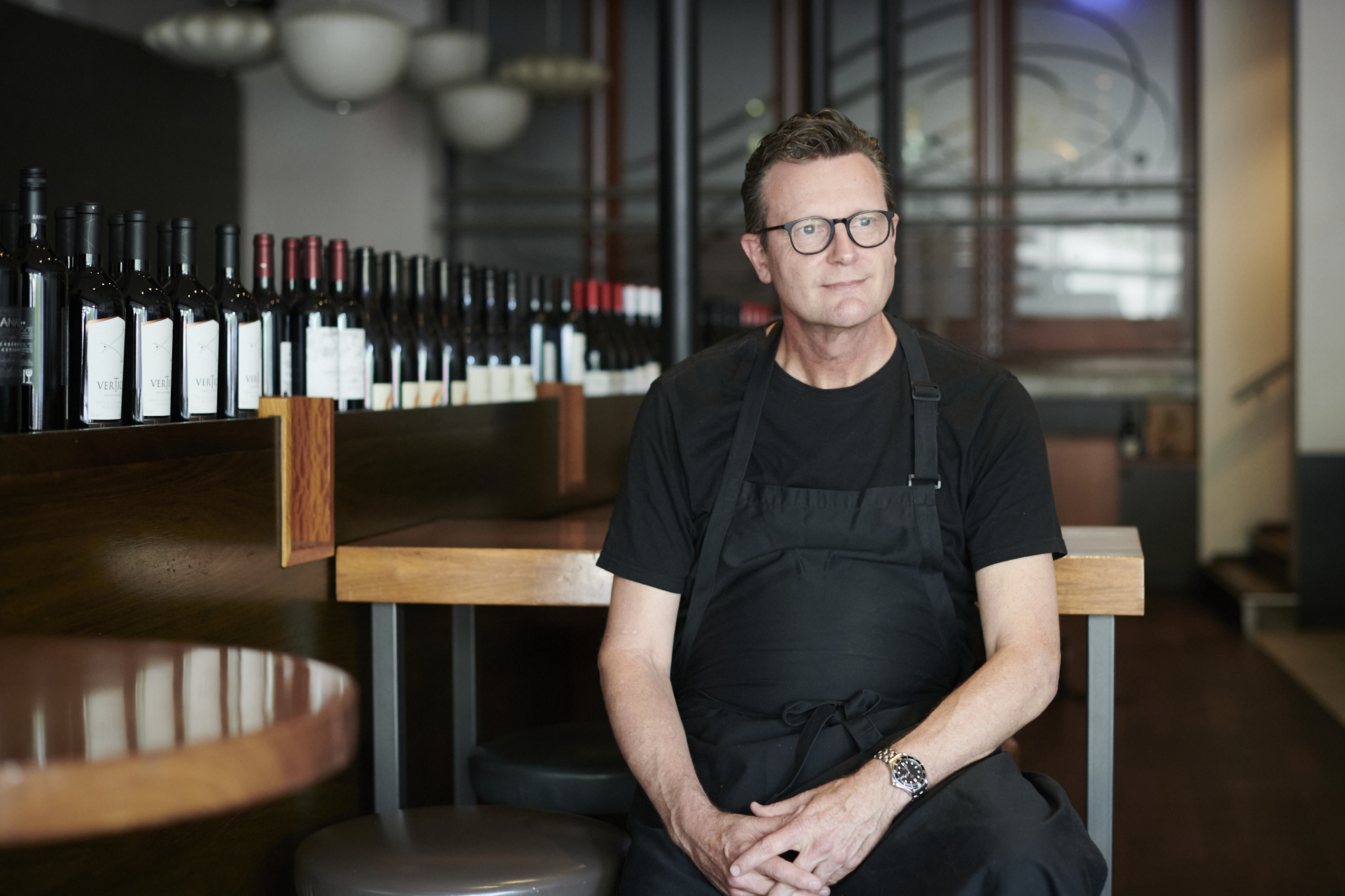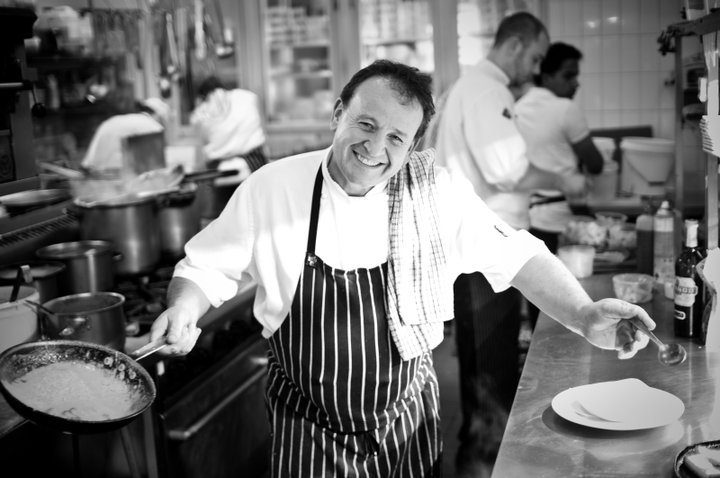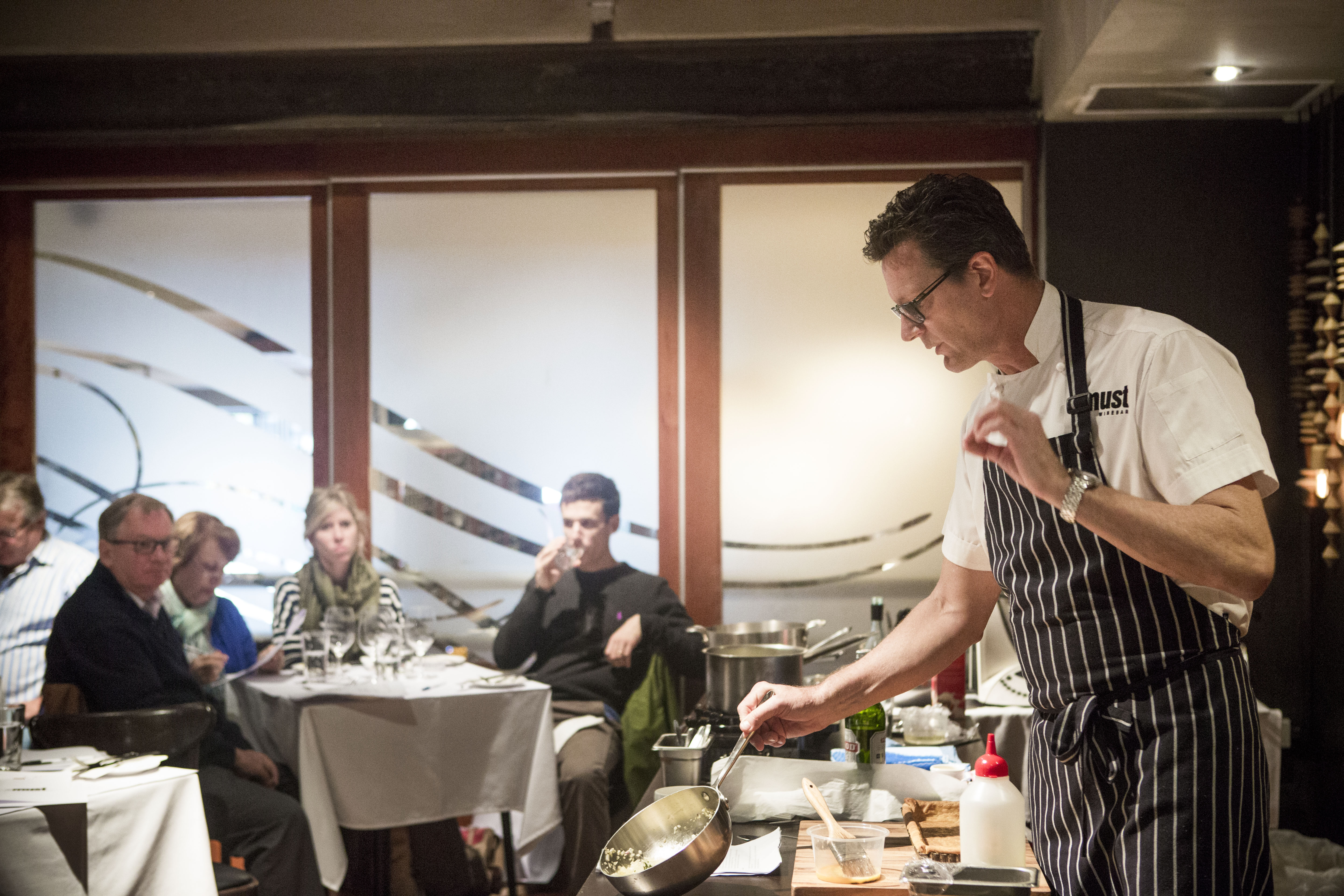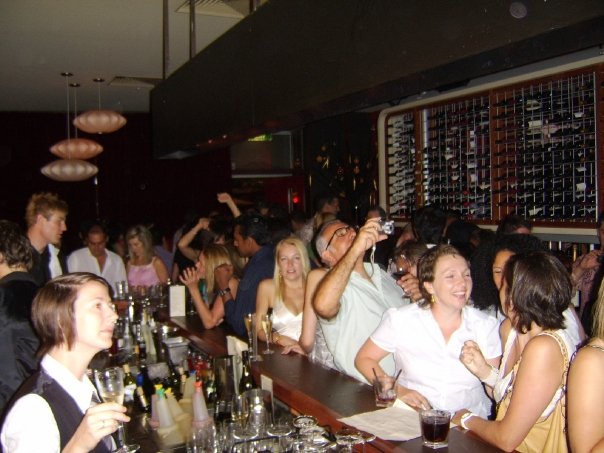When word got out that Must Winebar was closing at the end of December, Perth took it hard.
The Story of Must Winebar, As Told by the People Who Worked There
In this day and age, it takes a special kind of restaurant to last 19 years. Perth’s Must is that kind of restaurant. As the Beaufort Street institution heads into its final week of service, Broadsheet reflects on the Must story, as told by the people who lived it.
For eaters and drinkers of a certain era, Must was one of those restaurants that taught us how to dine. It was a place you’d dress up and save up for, certainly – but it also doubled as a bar you could just drop into for a quick drink (even if that drink would rarely end up being quick or singular). It was a place that, despite its fancy reputation, also knew how to get down. The New Year’s Eve soirees. The drinking sessions at the Champagne Lounge. The Melbourne Cup parties. Most of us, I’m sure, have a story that begins “Remember that time at Must, when…” before suddenly turning very MA15+. This isn’t the time for those stories.
Instead, we’re passing the microphone to some of the people who made Must what it was: the chefs, sommeliers and bartenders who fed and watered us over the past 19 years. After all, who’s better qualified to tell the story of the little Beaufort Street wine bar that could? From all the behind-the-scenes work that went into Must’s award-winning wine list to the challenges of schooling Perth in food and drink, this is a glimpse into how some of that Must magic happened. This collection of memories also serves as a comforting reminder that, although the Must story ends after dinner service on Saturday December 19, the restaurant’s spirit lives on in its alum working in restaurants, bars, wineries, cafes and stores around Western Australia, Australia and the world.
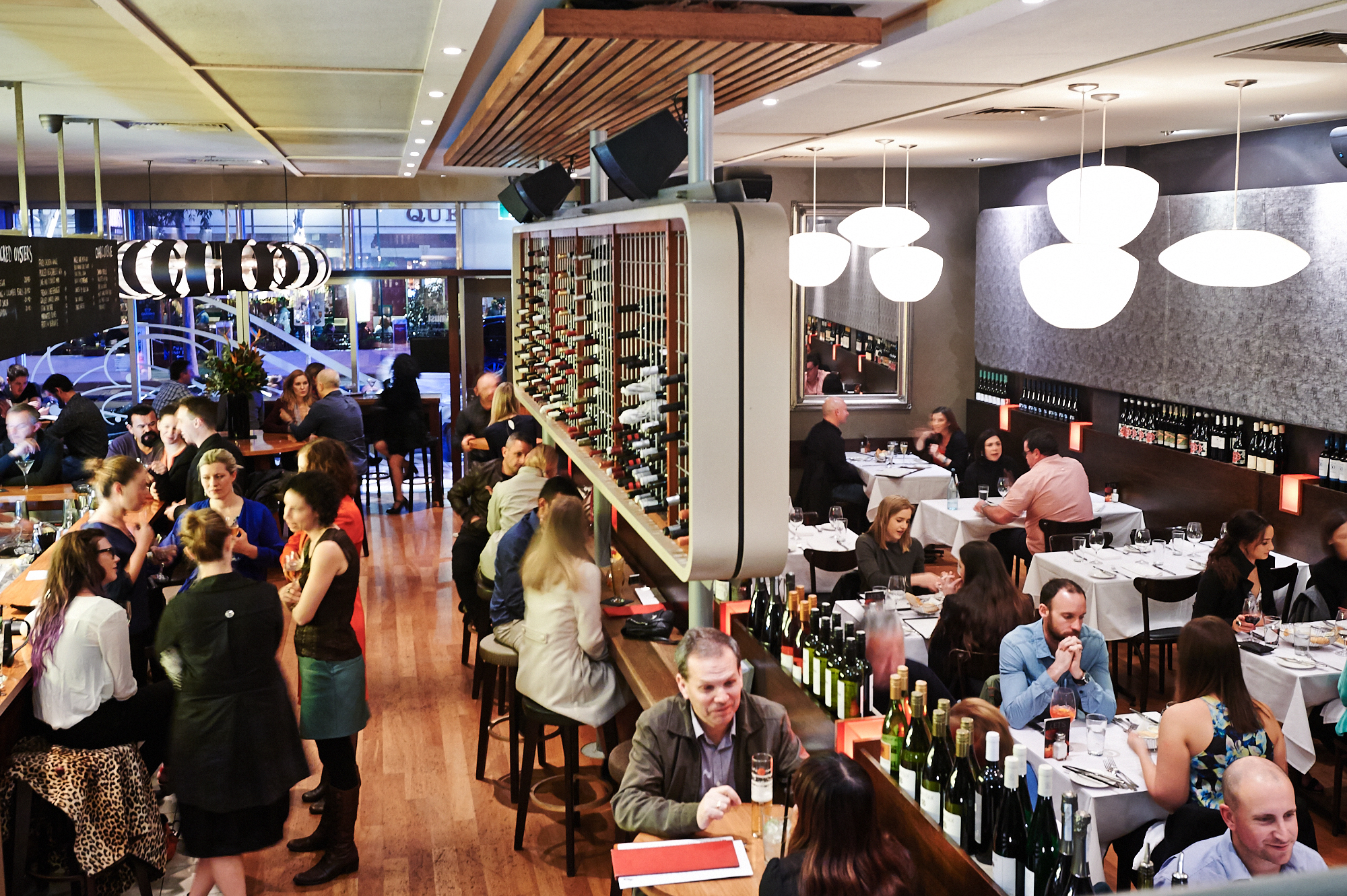
“Beaufort Street at the time was this strip of car yards”
“Must was unique for a couple of reasons. It was the first completely non-smoking venue in Perth, and it was also the first dedicated wine bar where you could go and drink a really good glass of wine and not have to have any food. Those were the two main things that were very different about Must from the beginning. Back then, no one had heard of charcuterie. For years I had to explain what charcuterie was – no one could pronounce it or knew what it was. For many people, they think it’s a plate of cured meat, which it’s not. You can’t call a plate of salami “charcuterie”; that’s not what it really is. Being able to share the story of Andre [Mahe, head chef], this second-generation charcutier who learned from his dad, was really special. To this day, his charcuterie is the best I’ve ever had in Australia, no question.
“Beaufort Street at the time was this strip of car yards. There wasn’t a lot of culture on the streets. There was the Queens. There was The Flying Scotsman. There was Jackson’s down the road for fine dining. And there was Must. I remember when The Brisbane opened, when Luxe opened – when all these other places started popping up and opening. It hadn’t yet become that street where people went to eat and drink, [but] it was still quite a destination. In saying that, it was within the beautiful Highgate and Mount Lawley community, so it was very local for so many people and easy to access. Within a very short time, the regulars there were very familiar faces that you would see two, three or four times a week. I went there on Saturday night for dinner with my parents and my sisters, and three people came up to me at the table, people I had served over 10 years ago. Crazy.
“The culture there put a lot of emphasis on education. Russell [Blaikie; partner, general manager and executive chef] was very, very generous in terms of time and energy spent educating staff, whether it was about food or wine. Back then, I don’t think many places did that. It was just a really nice, warm, welcoming family environment to be part of. I think that’s why so many staff who have worked there have really good memories of it.”
Emma Farrelly (director of wine, State Buildings, Perth)
Sommelier, 2002–2009
“If they never paid me, I still would have done it”
“It was the longest job I ever had, and the best job I ever had. When I started, Russell had approached me in regard to mentoring Emma Farrelly. I suspect what I brought to the position was probably a just broader tasting experience than what Emma had. I had just passed the tasting component of the Masters of Wine (MW) test, and MW forces you to taste an awful lot of international wines. WA, at that time, was quite limited in what was available.
“Basically, my role was tasting wine and assessing it for quality and value. What better job could there be? There was a lot of tasting and a lot of chasing up wine samples, but really, it was about trying to get that wine list balanced, interesting and eclectic, and getting the right pricing in there as well. What was the best value pinot at the time? Did it matter if we increased the price with certain products? We made a decision fairly early in the piece that we wouldn’t include New Zealand sauvignon blanc by the glass because it was too popular and it would cannibalise the list. There were all sorts of decisions like that.
“In all the 14 years Russell and I worked together, we never had a cross word and there was never a disagreement. He is just the epitome of professionalism. There were a lot of challenging circumstances, and Russell is just an expert at managing his way through those situations. I watched on with great respect, not just in terms of how he managed the business or the way he cooked the food and provided direction and focus, but the way he managed the staff was a real credit to him. It was such a unique and great opportunity. I’ll say this now – but I suppose they might already know – but if they never paid me, I still would have done it. It was one of those things I really loved.”
Paul McArdle (wine consultant, Perth)
Wine consultant, 2004–2018
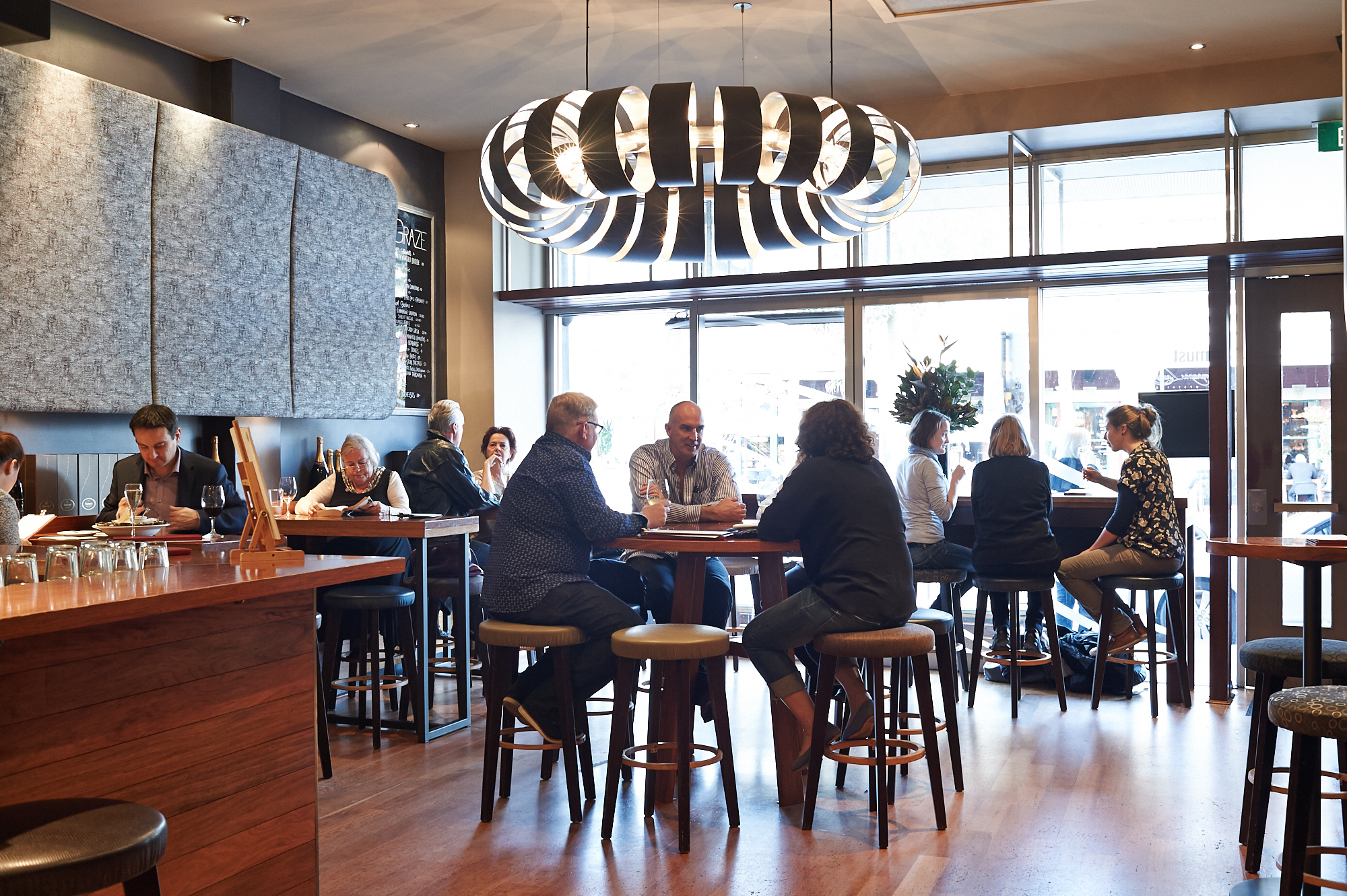
“There was always this ambition for Must to be one of the best in Australia”
“I spent a week over here for the interview, and it was almost like doing reconnaissance. Back then, you didn’t hear much about Perth in Melbourne. It was the longest job interview I ever had. I think it went for about five hours. We sat down, we spoke about everything, we tasted some of the food. I wanted to move over here at the time because my wife was from here. Someone I had worked with previously was at Must, so that’s how it all came about. I came from Movida in Melbourne, which was a bit of a larrikin at the time. While it was a two-hat restaurant and whatnot, it was just a heap of fun and that’s what came out in the service. Must was almost more serious than Movida, in a way.
“There was always this ambition for Must to be one of the best in Australia, and the wine program represented that. It won that many awards. Russell told us, ‘We want this wine list to be taken seriously, we need consistency,’ and Paul [McArdle] was the guy who drove that. For 14 years, he was that consistent link in the wine program. While sommeliers came and went, including myself, Paul was always there to oversee things and make sure it was all tickety-boo. I had just turned 30 when I moved over here, and that relationship with Paul just really took things to another level. That relationship with Paul was huge. I still value it today. He really exposed me to a lot of stuff I hadn’t seen previously. I don’t think I had taken wine that seriously before.
“Must really exposed punters to the world of wine. What Must was doing was finding stuff from the far inches of the globe and bringing it to Perth, whether it be through importers on the east coast or through direct importing, which we did quite a bit of. We were working with contacts in London who would find stuff that wasn’t in Australia. We were always onto that. And the sommeliers had enough time off the floor to be able to do that. It just comes down to time. Russell was committed to spending money on sommeliers being off the floor so they could find cool stuff. Not everyone does that. You’ve really got to make the numbers work.”
Aaron Commins (general manager, Island Market Trigg and The Shorehouse, Perth)
Sommelier, 2009–2012
“Must was cutting trends and pushing the levels of service”
“I moved to Perth from California after working as a restaurant manager at a very big, 450-seat dining room. My contacts here said Must was the place for wine. After working a couple of shifts there, I could see that Must was cutting trends and pushing the levels of service. That was very attractive to me. If I was going to stay in Australia and stay in hospitality, I wanted to work somewhere like Must.
“Russell was just a wizard when it came to listening to people, finding out what they really wanted and then managing them to get outcomes that were positive for everyone. I remember this chat I had with Russell after I had worked at Must for two years. The plan was to either quit or reduce my hours, but then he told me about his plans for the Champagne Lounge and how he wanted me to be involved and how he saw me as part of his business. He said, ‘We’re going to get you to Champagne and into all the greatest champagne houses. This is going to be the work trip of your life.’ I went from thinking, ‘I don’t want to work here anymore,’ to ‘This is my new favourite place on the planet.’
“Must was this community, this space that allowed all these people to meet and exchange ideas. We were challenging each other with finding the next best food match, the next best cocktail, the next best wine. It was a really unique time and place, and it was a privilege to be part of it.”
Zach Nelson (wine merchant, Dan Murphy’s Double Bay, Sydney)
Champagne Lounge manager, 2004–2006
“Must’s influence on Perth’s drinks culture has been immense”
“I arrived in Perth in August 2007 and started at Must in September as a bar back. I had worked in pubs in the UK and this was my first hospitality job in Australia. It was very eye-opening. Back then, if you chose the top three bars in Perth, Must was definitely on that list – not just for the wine, but also for atmosphere, cocktails and spirit selection. You’d rock up for work on a Friday and the bar would be three or four deep from 5 o’clock. People like Jamiroquai, Martina Navratilova and members of the Wallabies would come through when they were in town. It was an iconic place in Perth to go if you were into good food, good wine, good drinks and good service.
“My time at Must was one of the best points of my career. You couldn’t have been in a better place to learn. Zach Nelson and [former bar manager] Jamie Fisher, in particular, invested a fair bit of time to help me develop, which was really important. We were always taught to do things the correct way. Zach was really good with classic cocktails. It wasn’t like it is now, where bartenders are trying to put together drinks with seven different ingredients that are all house-made. Back then, we used whatever was behind the bar and what we could buy from the local deli. This was back when Mojitos and Caprioskas were the kings of the drinks world, so we were mostly learning classics and twists on classics. A lot of what I learned from Zach has filtered down to the hundreds of bartenders I’ve worked with over the past 13 years. Must’s influence on Perth’s drinks culture has been immense.”
James Connolly (group bars manager, The Ark Group, Perth)
Bar manager, 2007–2009
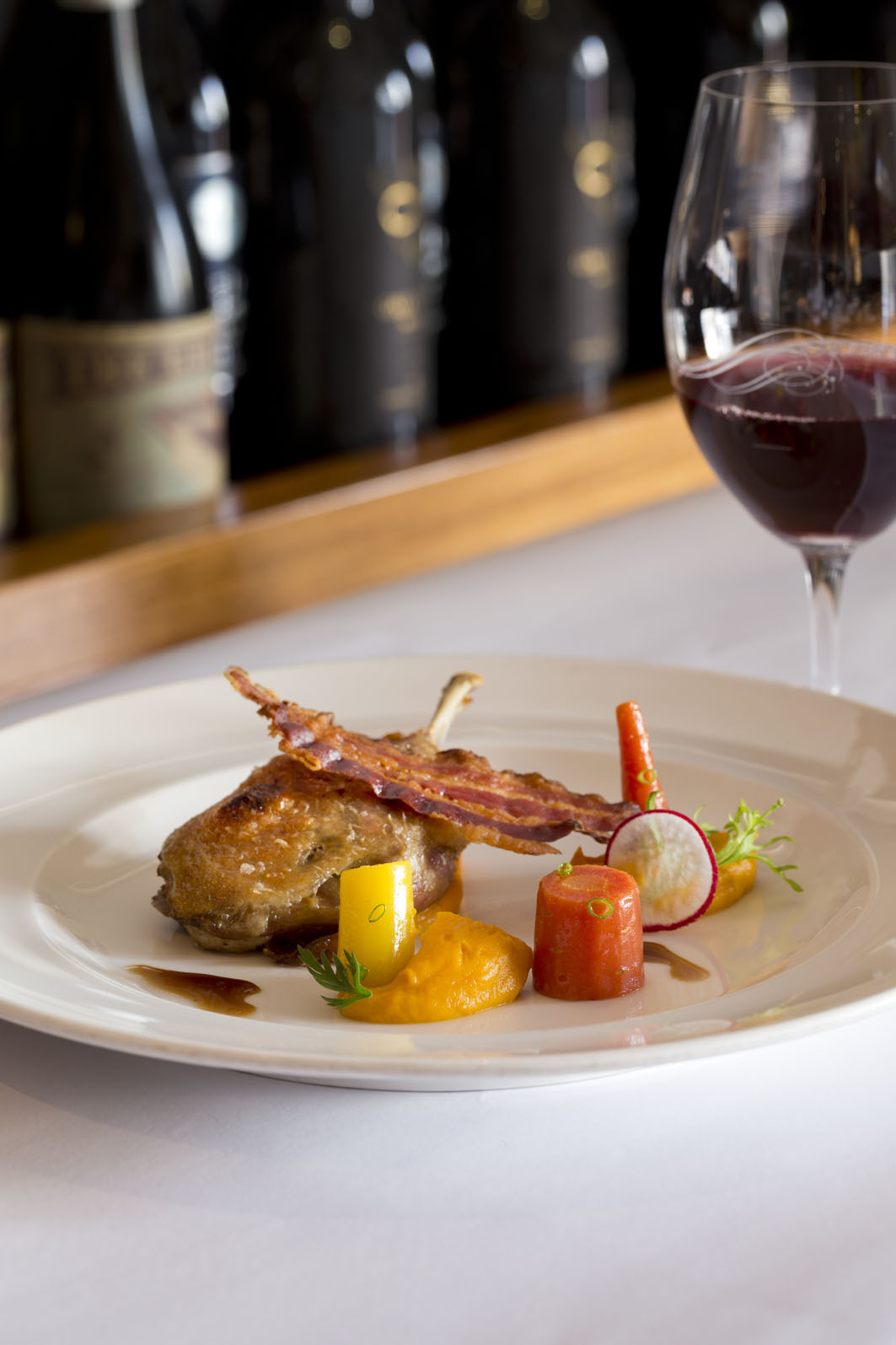
“He gave me a second chance when many others wouldn’t”
“Working at Must was a pivotal time in my life and was the catalyst for my whole career. I will be forever grateful to Russell and Andre for taking my directionless and somewhat lost 21-year-old self under their wing back in 2001.
“Russell instilled in me so many moral and business values that I try and uphold in the way I treat people within my own business today. He gave me a second chance when many others wouldn’t. He had faith in my ability when I didn’t. He taught me the need to chase things you’re passionate about but also the importance of being able to work hard and set realistic goals. Russell also taught me that you can lead a team and command their respect without using fear. His mentoring has continued long after the five years I spent at Must. I know if I’m ever in trouble or ever need business advice, I can always contact Russell. His words, both warm and wise, have really helped me through some difficult times in my own business over the last six years.
“I wouldn’t know where to start in regard to what Russ and Andre have taught me about food. They’ve taught me so much, not least the value of using and supporting local, seasonal produce, how to season food and the importance of restraint on the plate. Good food should speak for itself.
“Running a successful restaurant takes more than just serving great food. It’s a business. It’s a community. It’s about creating a culture that people want to be part of, and no one has understood that and been more successful than Russell. He’s created an institution, and nurtured and helped build an amazing and formidable hospitality alumni. Like everyone else in that group, I will forever be proud and honoured to have Must as the backbone of my hospitality journey.”
Amy Hamilton (chef-owner, Liberté, Albany)
Apprentice, 2001–2005
“I would have stayed at Must forever”
“When I moved to Perth from Margaret River, there were only a few restaurants you would have moved for at that time. There was Star Anise, Jackson’s, Amuse and Must. I was at Must for four years and qualified there before going to Jackson’s for two years. The only reason for that was I wanted to learn more about pastry. I was already running the pastry section at Must and just needed to learn more. Otherwise, I would have stayed at Must forever.
“Andre and Russell ran a tight ship, but not so tight that it made you feel sick. My dad passed away when I was very young, so I felt that, between Andre and Russell, they took me under their wing. They didn’t treat people nasty. If you treated people nasty, you didn’t have a job. That kindness is what I took into Mrs S when I was head chef, and after that, my own business. I refuse to throw pans at my staff and speak to people in ways they don’t need to be spoken to. People work better for you if you treat them better.”
Lisa Schreurs-Stone (owner, Sieve & Stone, Perth)
Junior sous chef, 2008–2012
“I was very blessed to be able to go through that kitchen”
“Must played a massive role in my career as a chef. I got my job there through some program at high school that introduced students to the hospitality industry. You chose to have dinner at one of these 10 restaurants, but coming from the area and family I’m from, I hadn’t heard of any of them. But my cooking teacher said, ‘I think you should go here,’ and steered me towards the dinner at Must. Russell came down at the beginning of the dinner with this massive piece of fresh asparagus he was really excited about – he wanted to show us what produce could be. I had never seen fresh asparagus before and eating it blew my mind. That was the turning point that really got me into cooking.
“It was great in that kitchen. It was always hard work and constantly busy, but that’s the best thing you can ask for, really. Russell had a reputation for hiring a lot of apprentices because of his passion for teaching the new generation of chefs. The way they were able to handle apprentices was really good, and the way the kitchen was laid out was quite well-designed for progression. I loved it. All of the guys there were good fun to work with.
“The biggest lesson I learned was the ability to work to your maximum capabilities. There were always things to do, and there were people there to make sure you were never slacking off and that things were done properly. I also learned about the structure of organising your day. Lisa [Schreurs-Stone] was very good with that sort of stuff and I learned a lot from her. French food is the basis of most modern cooking so it was important to learn simple things like how to make a stock properly. I couldn’t have asked for a better building block, to be honest.
“I was chatting to mum a couple of weeks ago and told her that Must was shutting down. She told me, ‘You were so blessed to have worked there.’ She met Russell and was automatically very impressed by him. She could tell how good a person he was. For her, it was a no-brainer to sign me over to them. I didn’t realise it at the time, because I was just getting into cooking and Must was my first kitchen, but she was right. I was very blessed to be able to go through that kitchen.”
Richard Overbye (head chef, Amaru, Melbourne)
Apprentice, 2008–2011
“Must was the place that started the charcuterie trend in Australia”
“I was a 25-year-old chef when I arrived in Perth. I came here to work at this new hotel that was opening on the beach in Scarborough called Observation City. It was the place to be back in the day. Back then everyone was working in hotels. It wasn’t until the early ’90s that things turned around and restaurants came back into fashion. People were waiting for Must to open and were curious to see what it was going to be. I knew it was what I wanted to do. I was actually waiting for it to open to apply for a job.
“Russell is a very smart guy. He knew that to be different, you needed somebody a little different. He wanted to do authentic charcuterie and stuff like that, which wasn’t done in Australia back then. Must gave me a chance to do what I was doing when I first started and go back to the root of my cooking. In my opinion, Must was the place that started the charcuterie trend in Australia. I thought, ‘Why can’t we make charcuterie in restaurants? Why does it just have to be at a butcher?’ After that, it went everywhere. Must was the precursor for so many things in Perth.
“I really love working with Russell. He’s such an easygoing guy. I don’t think I’d have such a good name if I wasn’t working at Must. I did things for Must, but it also did a lot of good things for me.”
Andre Mahe, head chef, 2001–2016, 2020
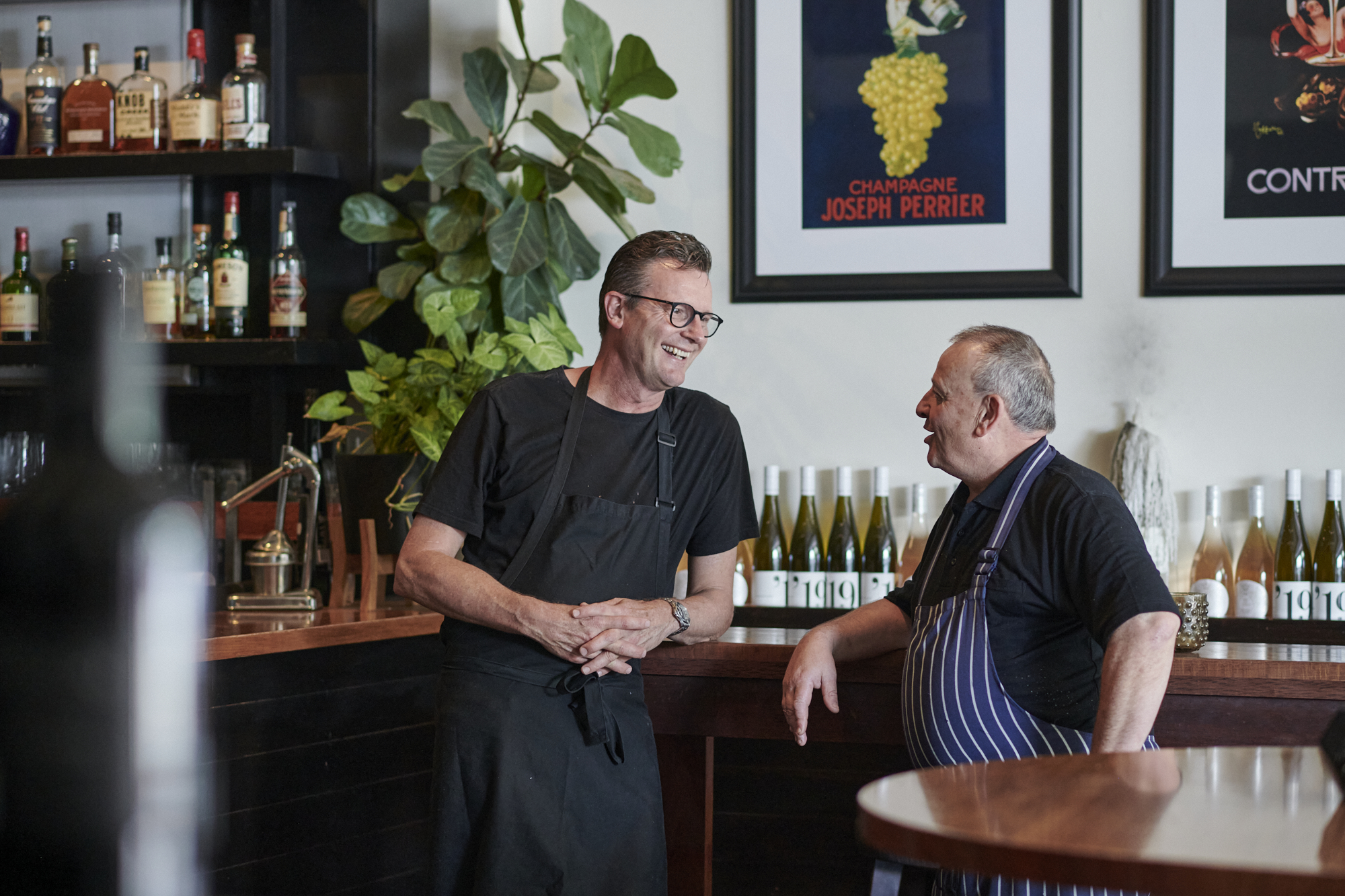
“There is a bond in those past teams that is totally unbreakable”
“I haven’t spent a lot of time thinking about Must closing because I’ve been too busy getting it done. Every time I step out the front or go to the bar, people are expressing to me that they’re losing something special to them. What people are recounting to me are all these special moments in their lives. Their first date with their partners. Family milestones. A lot of really personal events that people are coming and telling me about. So many people who had their wedding receptions at Must have come back for one last hurrah and a drink.
“We thought we had the right product – a Parisian-inspired wine bar with French bistro food and really good service and really good knowledge. It was the kind of place where you could have an event or you could have a casual drink. Having that broad appeal was really important. We didn’t want to intimidate people. It was stressful and absolutely terrifying opening a business as big as Must, especially when you’ve got a product that’s quite unique. There was nothing like it in Perth, but we had a lot of knowledge on the floor, which counts for something when you’ve got something new, because you can tell a story and you can explain it and work people through it and help them pronounce words like “charcuterie”. For the first two years, we really struggled a bit financially. It was a lot of hand-selling for a couple of years.
“I hope Must is remembered fondly. I hope it’s remembered as a place where you celebrated, created friendships and occasionally consummated friendships. There’s something about really good wine and great bistro food that just lubricates people’s social being. When people are in this wonderful, elevated conversation, they’re getting a kind of adrenalin rush from being in there, chatting with their friends, and eating and drinking something nice. It’s the complete package.
“Above all else, I’m most satisfied about the relationships between the people who have worked here and the strength of that family. There is a bond in those past teams that is totally unbreakable. There are relationships, there are husbands and wives, there are babies and there are best friends for life from those teams who have come through in the past.”
Russell Blaikie; partner, general manager and executive chef, 2001–2020
